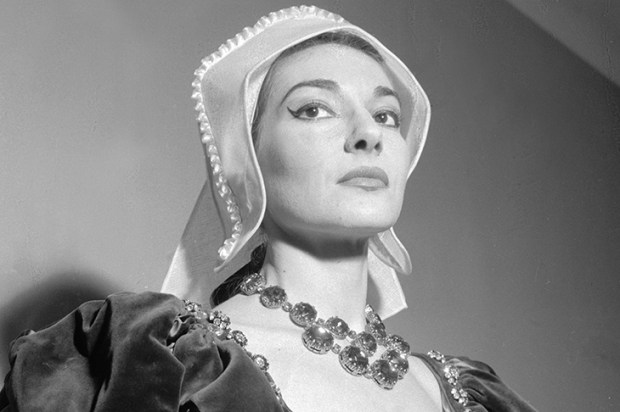Listen
How did the Bard kick the bucket? The 400th anniversary of Shakespeare’s death reignites interest in a great literary mystery. All we know for sure is that he was buried on 25 April 1616 in Holy Trinity Church, Stratford, and it’s a fair assumption that he died a couple of days earlier, around his 52nd birthday.
A dearth of evidence compels us to sift the plays for clues to his lifestyle, which may, in turn, help with the autopsy. Historians condemn this kind of detective work but their reasons seem pretty unfair. Imagine that the biographies of the last century’s leading dramatists had perished and we were trying to reconstruct their characters from their writings. We’d feel entitled to guess that Coward was a bit camp, that Beckett had his gloomy spells, that Pinter could get quite shirty, and that Stoppard enjoyed puns and had a brain the size of Canada. By the same token Shakespeare provides good evidence that he liked a drink. Many of his best-known characters are inseparable from booze: Mark Antony, Sir Toby Belch, Falstaff, Prince Hal and the other inmates of Mistress Quickly’s tavern. Macbeth is often played convincingly as a sot. Hamlet’s aversion to the bibulous culture of Elsinore may indicate the guilt of the penitent tippler. In Othello, alcohol is crucial to the story. The drunken antics of Cassio lead to his dismissal and this accelerates Iago’s plot against the Moor. But before we postulate that Shakespeare was ‘an addict’ who died of ‘alcohol abuse’ we should bear in mind a neglected fact of early modern history. Until the arrival of tea in the 18th century, the whole of Christendom was drunk all day, every day, because the only reliable means of sanitising water was fermentation. Where every drink contains alcohol, everyone is a problem drinker.
There’s a persistent rumour, which hasn’t quite the strength of a ‘tradition’, that Shakespeare succumbed to syphilis in later life. The evidence is scanty and it comes from a passage in Lear where the vagrant king delivers this salty outburst. ‘But to the girdle do the gods inherit,/ Beneath is all the fiend’s./ There’s hell, there’s darkness, there’s the sulphurous pit, burning, scalding, stench, corruption. Fie fie fie; pah pah!’ Whatever was itching Lear, it was worse than nits. And yet nothing in the later plays focuses on the nether regions with such rebarbative intensity. And in the final work, The Tempest, Shakespeare creates a central character of notably mellow and sanguine disposition. But Prospero’s serenity, if we grant ourselves permission to interpret the role as the author’s self-portrait (as Coleridge did), is perfectly compatible with the diagnosis of syphilis because, in its tertiary stage, the disease abandons its inflammatory assaults on the body and leaves the patient invisibly weakened and vulnerable to death by stroke or heart failure.
The nearest we have to a proper post mortem comes from John Ward, vicar of Holy Trinity, who entrusted this medical opinion to his diary in 1661: ‘Shakespear, Drayton, and Ben Jonson had a merry meeting and it seems drank too hard, for Shakespear died of a feavour there contracted.’
But there are puzzles here. A fever is not a natural consequence of heavy drinking. And at first sight it seems that Shakespeare and Jonson held a luvvies’ reunion with Michael Drayton, a local poet and dramatist, and all three got royally hammered. As Shakespeare recovered the next day he picked up a virus, keeled over and died. Imperfect science conflated the bug and the booze-up.
There is also a will, dated 25 March, 1616, whose wobbly signature has prompted speculation about Shakespeare’s faltering health. One theory is that the Bard knew his end was nigh and resolved to set his affairs in order at the last minute. And yet, one’s deathbed seems a curious place from which to organise a booze-up with anyone, let alone with Ben Jonson. One commentator finds corroboration for Ward’s diary in contemporary health reports. ‘A serious outbreak of typhus, known as “the new fever”, in 1616, lends weight to Ward’s story.’ But does it? Pestilences were so common in Shakespeare’s day that cities were regularly deserted by any inhabitant who could afford to escape. Such outbreaks invariably closed the theatres and forced Shakespeare to suspend his trade as a playwright. So this ‘serious outbreak’ may be no more than a sudden spate of unexplained deaths in a particular area. And Ward’s evidence, though contradictory, clearly ascribes Shakespeare’s death to two related causes: disease and over-drinking.
Criminal barristers will tell you that when more than one explanation is offered for a single event, the witness may be concealing the truth. And that’s my hunch. Ward was writing nearly half a century after the binge that he recounts in such informal but telling detail. His literary symposium features the two great playwrights of their day along with a local lad, Drayton, who blurs the contours a little and makes the picture more casually credible. But the placement of Shakespeare alongside the roistering Jonson on the eve of his death seems a little too convenient. I think we’re entitled to surmise that the syphilis rumours were not just accurate but were known to be true. Nearly 50 years later, along comes Ward, a respectable churchman and a devotee of Shakespeare, who constructs a tale that happily suppresses the last distasteful whisper about his literary hero: Shakespeare died of the pox.
The post Death and the Bard appeared first on The Spectator.
Got something to add? Join the discussion and comment below.
Get 10 issues for just $10
Subscribe to The Spectator Australia today for the next 10 magazine issues, plus full online access, for just $10.













Comments
Don't miss out
Join the conversation with other Spectator Australia readers. Subscribe to leave a comment.
SUBSCRIBEAlready a subscriber? Log in